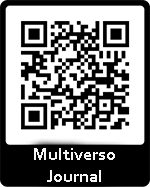Human rights and dignity in the nasa ethnicity. Comparative vision with current western concepts
DOI:
https://doi.org/10.46502/issn.2792-3681/2025.8.5Keywords:
human rights, human dignity, Nasa ethnicity, indigenous worldview, collective rights, anthropology of human rightsAbstract
This article aimed to describe the concept of human rights within the Nasa indigenous community and, at the same time, to compare it with current Western concepts of dignity and human rights. In the inquiry and reflective process, the nations of human rights and dignity in diverse non-Western cultures are explored, with a special emphasis on the Nasa community, a prominent ancestral group in Latin America. To achieve this objective, a methodology of descriptive review of the scientific literature on the subject was employed, clearly identifying the databases and sources used for the collection of information, followed by an exhaustive analysis. The article discusses the discourses on human rights between the Nasa community and Western perspectives, highlighting similarities and differences from an anthropological point of view.
The study concludes with an in-depth analysis that underscores the importance of recognizing diverse cultural frameworks in the understanding and application of human rights.
References
Boco, R., & Bulanikian, G. (2010). Derechos humanos: universalismo vs. relativismo cultural. Alteridades, 20(40), 9-22. https://acortar.link/vn64Mc
Consejo Regional Indígena del Cauca (CRIC). (30 de agosto de 2021). Caracterización de los sistemas de justicia propia de los pueblos y autoridades indígenas que integran el Consejo Regional Indígena del Cauca. Ministerio de Justicia y del Derecho. https://acortar.link/oYZQFl
Creswell, J. W. (2014). Research Design: Qualitative, Quantitative, and Mixed Methods Approaches (4th ed.). SAGE Publications.
DANE. (2018). Censo Nacional de Población y Vivienda. https://acortar.link/2c6
Denzin, N. K., & Lincoln, Y. S. (Eds.). (2011). The SAGE Handbook of Qualitative Research (4th ed.). New York: SAGE Publications.
Dleštíková, T. (2024). El punto de vista de la justicia estatal a la imposición de las sanciones corporales en la justicia indígena: El caso de la comunidad Nasa en Colombia. Universidad Karlovy. https://dspace.cuni.cz/handle/20.500.11956/193173
Donnelly, J. (2013). Universal Human Rights in Theory and Practice (3rd ed.). New York: Cornell University Press.
Flick, U. (2018). An Introduction to Qualitative Research (6th ed.). New York: SAGE Publications.
Gómez, F. (2011). Diversidad cultural y derechos humanos desde los referentes cosmovisionales de los pueblos indígenas. Anuario español de derecho internacional, 27, 269-315.
Goodale, M. (2009). Surrendering to Utopia: An Anthropology of Human Rights. California: Stanford University Press.
Gros, C. (2015). Políticas de la etnicidad: Identidad, Estado y modernidad. Bogotá: Instituto Colombiano de Antropología e Historia.
Martínez, W., & Guerrero, D. (2019). La comunicación ancestral nasa. una comunicación desde el wët wët fxi’zenxi (buen vivir). IC Revista Científica de Información y Comunicación, (16), 665-690. https://dx.doi.org/10.12795/IC.2019.i19.21
Ministerio de Justicia y el Derecho y Consejo Regional Indígena del Cauca. (2020). Caracterización de los sistemas de justicia propia de los pueblos y autoridades indígenas que integran el Consejo Regional Indígena del Cauca. CRIC. https://acortar.link/cEl4Us
Naciones Unidas. (1948). Declaración Universal de Derechos Humanos. Obtenido de https://www.un.org/en/about-us/universal-declaration-of-human-rights
Organización Nacional Indígena de Colombia - ONIC (2009). Cosmovisión del pueblo indígena Nasa en Colombia: Reducción integral de los riesgos, planificación y desarrollo sostenible. https://acortar.link/JTTa0I
Picciotti, C. (2019). Mujeres nasas: tejiendo caminos de participación y resistencia. Universidad de los Andes, Colombia, 1-35. https://repositorio.uniandes.edu.co/entities/publication/102e6d64-a65d-4d38-adfe-22227f1c26bc
Rappaport, J. (2005). Intercultural Utopias: Public Intellectuals, Cultural Experimentation, and Ethnic Pluralism in Colombia. Durham: Duke University Press.
Rappaport, J. (2018). The Politics of Memory: Native Historical Interpretation in the Colombian Andes. Durham: Duke University Press.
Smith, L. T. (2020). Decolonizing Methodologies: Research and Indigenous Peoples (3rd ed.). London: Zed Books. https://acortar.link/cSlV5h
Tomaselli, K. G. (2012). Cultural Tourism and Identity: Rethinking Indigeneity. Boston: Brill.
Walsh, C. E. (2010). Interculturalidad, estado, sociedad: Luchas (de)coloniales de nuestra época. Quito: Ediciones Abya Yala.
Yrigoyen, R. (2004). Pluralismo jurídico, derecho indígena y jurisdicción especial en los países andinos. El otro derecho, 30, 171-195.
Yrigoyen, R. (2009). De la Tutela a los Derechos de Libre Determinación del Desarollo, Participación, consulta y Consentimiento: Fundamentos, balance y retos para su implementación. Amazônica-Revista de Antropologia, 1(2).
Published
How to Cite
Issue
Section
License
Copyright (c) 2025 Shirley Patricia Soracá-Becerra

This work is licensed under a Creative Commons Attribution 4.0 International License.
The authors who publish in this journal agree to the following terms:
The authors retain copyright and guarantee the journal the right to be the first publication where the article is presented, which is published under a Creative Commons Attribution License, which allows others to share the work prior to acknowledgment of the authorship of the article. work and initial publication in this journal.
Authors may separately enter into additional agreements for non-exclusive distribution of the version of the work published in the journal (for example, placing it in an institutional repository or publishing it in a book), with an acknowledgment of its initial publication in this journal.



















